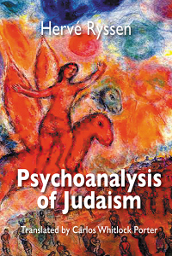Description
By Hervé Ryssen
Translated by Carlos Porter
There is no doubt—despite claims of rampant “anti-Semitism”—that Jews are possibly the most successful religious and cultural group on the planet. In America, they are the kings of media, Hollywood, the music industry and Wall Street. They have the most powerful and determined lobbies in the world, working not only for their own national interests, but the interests of the state of Israel. Israeli leaders have openly admitted that they “own” the U.S. Congress—and nobody will argue against that with a straight face for very long.
So what makes Jews so successful? How have they been able to wield such influence over the generally non-Jewish nations in which they dwell? How have they managed to convince so many that their suffering over the centuries is worse than that of other ethnic and religious groups? How have powerful Jewish organizations managed to get the world’s biggest and most lucrative tech companies to restrict discussion of such topics on the Internet? If we all can agree that Jews have had a great impact on history, would it behoove us to understand what it is about their religion and their culture that makes them so resilient and so unified? In short, what makes the Jewish mind tick? In Psychoanalysis of Judaism, author Hervé Ryssen—oft-attacked for his forthright books on the topic of Judaism—delves into this very subject in a book unlike any other you have ever read on the Jewish psyche.
General topics covered include: How can guilt be used to control people; how many religious Jews believe that a Messiah will come who will raise them up to global preeminence; their amazing racial and religious solidarity; the parent-child relationship; what makes them laugh; their powerful revolutionary spirit; their attitudes toward Christianity and Christians; their cosmopolitan mentality; the inexplicable existence of anti-Semitism when Jews are perceived as champions of the downtrodden; anti-Semitic paranoia; their ongoing love affair with communism; alleged inferiority complexes; claims of codified incest; Oedipal relationships; their love of feminism and matriarchy; and, of course, an analysis of the Talmud, Kabbalah and the “art” of psychoanalysis itself as “invented” by Sigmund Freud.
This and so much more are discussed openly and honestly in this book. By the end, you will have a much greater understanding of the Jewish mindset and how Jews in general—but not all—have achieved an impressive level of status, wealth and power attained despite dogged resistance from other racial and religious groups over the centuries.
Psychoanalysis of Judaism: Softcover, 461 pages, #846

